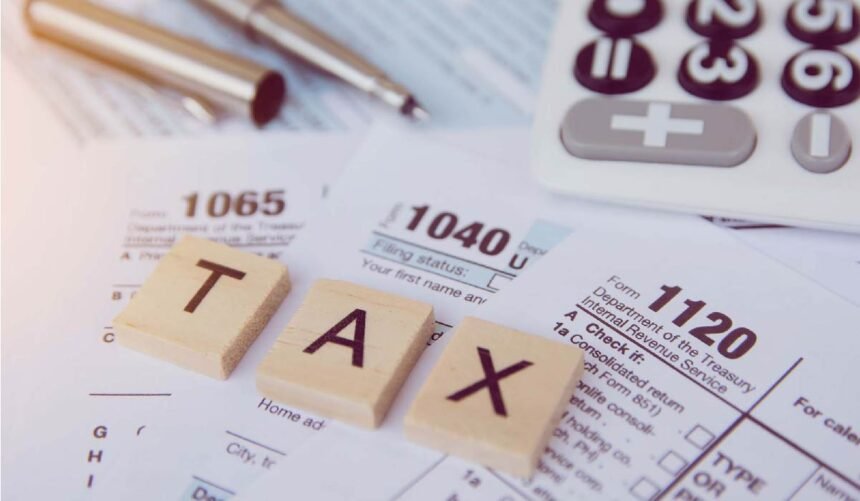Every year, UK draws in numerous and students who soon realize that financial responsibilities go beyond adapting to their everyday routines. A crucial factor for them is grasping the implications of the UK tax system on their situations. Proper is essential to adhere to HMRC regulations and prevent any unwarranted fines or being taxed twice. For anyone navigating income tax in UK for foreigners, knowing the basics and taking a structured approach can make the process far less daunting.
Understanding Your UK Tax Status
Determining if you are classified as a UK tax resident is crucial before exploring advice on how to file taxes. Your tax residency status plays a significant role in how your earnings are evaluated and taxed.
The Statutory Residence Test (SRT)
Your residency is determined by the Statutory Residence Test, which evaluates:
The number of days you spend in the UK within a tax year (6 April to 5 April)
The extent of your connections to the UK (family, property, employment, etc.)
Automatic overseas or automatic UK residence criteria
Typically, individuals who are considered UK residents are subject to taxation on their global income, whereas non-residents are usually only liable for tax on income generated within the UK, such as earnings from a UK-based job or rental properties.
Split-Year Treatment and Status Changes
Individuals from abroad who enter or depart the UK during the tax year may be eligible for split-year relief, where tax is only levied on the period they were UK-resident. Familiarizing yourself with these regulations from the payments.
Income Sources You Need to Declare
Foreign nationals often have diverse sources of income, and knowing which must be declared is crucial:
UK and foreign employment income
Self-employment and freelance income
Dividends, capital gains and interest
Overseas rental income
Pensions from abroad
Other sources such as royalties or consultancy fees
Even if income is already taxed in another country, it may still need to be reported in the UK, with relief applied under double taxation treaties.
Practical Tips for Smooth Filing
Register with HMRC in Time
Register for Self Assessment by 5 October after the tax year ends if you are self-employed or receive untaxed income.
Keep Detailed Records
Keeping accurate and up-to-date records, including pay stubs, bills, financial statements, and tax records, is crucial. This helps streamline the reporting process and provides a solid foundation for making claims for deductions or exemptions.
Apply Correct Exchange Rates
Foreign earnings need to be transformed into British pounds by utilizing the approved exchange rates provided by HMRC or suitable averages.
Take Advantage of Double Taxation Treaties
The United Kingdom has established treaties with numerous nations to prevent double taxation. By taking advantage of the appropriate relief, you can avoid being taxed twice on the same earnings.
Claim Eligible Reliefs
You can lower your tax bill by claiming deductions for eligible expenses, pension payments, charitable donations made through Gift Aid, and losses on investments. It's essential to regularly check which tax reliefs you're entitled to.
Note Upcoming Changes
A tax rule that previously allowed certain non-UK residents to only pay tax on income that was brought into the UK is being abolished. Starting in April 2025, numerous individuals will have to reevaluate their approach to tax filings.
Respect Deadlines
31 October: paper tax return deadline
31 January: online tax return and payment deadline
5 October: registration deadline
Missing these dates may result in penalties, even if you do not owe tax.
Prepare for Digital Filing
Starting in 2026, a number of taxpayers will need to adhere to the Making Tax Digital regulations by filing quarterly returns using authorized software. Getting ready in advance will help simplify the switch.
A Real-World Example
Consider Daniel, an international consultant who moved to London in September. He receives both a UK salary and dividends from his home country.
He uses the Statutory Residence Test to confirm UK tax residency.
He applies split-year treatment, ensuring only income after September is taxed worldwide.
His overseas dividends are converted using HMRC’s official exchange rates.
He claims foreign tax credits under the relevant treaty.
He files his Self Assessment online before 31 January.
By following these steps, Daniel remains compliant while optimising his tax position.
Navigating the UK tax system as a non-UK citizen can be daunting, but breaking it down into manageable parts can make a big difference. Knowing your residency status, keeping accurate records, and taking advantage of available tax reliefs can greatly reduce the complexity. If challenges do arise, seeking expert guidance can help minimize financial losses and alleviate anxiety.


